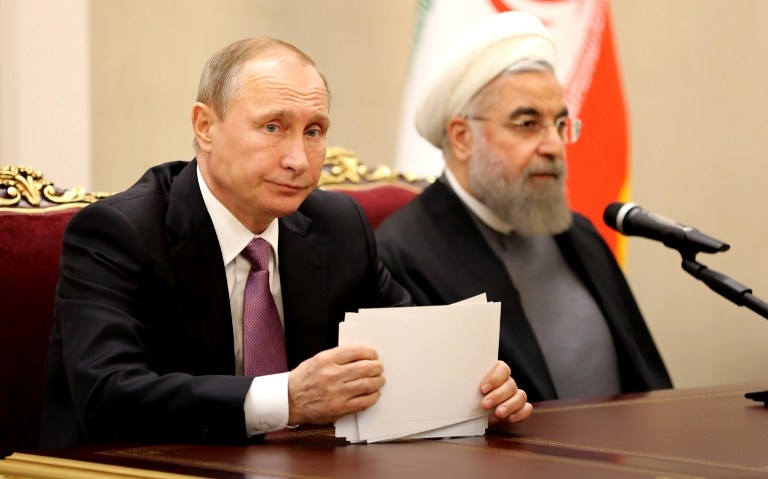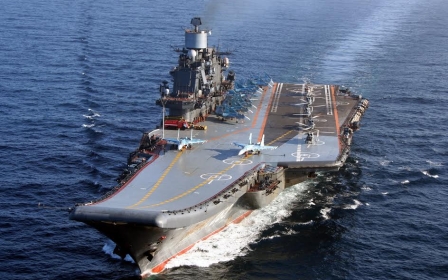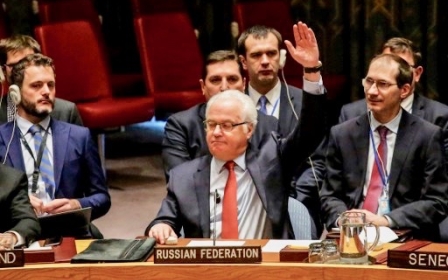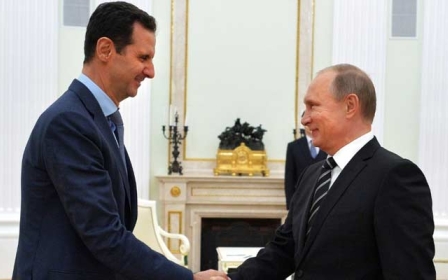Hezbollah refuses Russian entry to Syria's Wadi Barada: activists

Hezbollah denied Russian observers entry to rebel-held Wadi Barada, a besieged Damascene enclave that supplies water to the capital, for a second day on Friday, local activists and media outlets claimed.
Lebanese news site al-Mayadeen reported on Friday evening that a ceasefire had been agreed for Wadi Barada, and that a Russian delegation had been allowed to enter the area - but local activists immediately denied the claim, saying no Russian troops were on the ground and a truce had not been agreed.
Elders from the besieged area had invited the Russians to assess damage to water infrastructure and monitor ceasefire violations committed by pro-government forces, it was previously reported.
President Bashar al-Assad’s army and its sundry allied militias, backed by Iran, launched an operation to capture Wadi Barada in rural Damascus at the tail end of 2016.
Lebanon's Shia militia Hezbollah is heavily involved in operations in the area, which contains the main source of water for five million people living in Damascus.
The alleged rebuff to Russia was corroborated by two local sources.
Osama Abu Zeid, the official spokesperson for the opposition factions taking part in the ceasefire negotiations, said on Twitter: “A Hezbollah checkpoint in Deir Qanun denied for the second time Russian observers entry to Wadi Barada.
“Russia is failing to control Iran’s militias.”
Osama Abu Zeid’s tweet
Fuad Abo Hatab, a lawyer living in Wadi Barada, said on his Facebook page: “Today again Hezbollah members denied a delegation compromised of 4 Russian officers, the leader of (FSA) Division 13, and a number of notable figures from Wadi Barada from entering Wadi through al-Mosalbeya checkpoint in Deir Qanun.
“Russia’s prestige is being dragged through the dirt.”
Fuad Abo Harab’s Facebook post
The reports come as tensions between Tehran and Moscow begin to come to the surface.
Iran-backed militias previously harassed civilians fleeing east Aleppo under a Moscow-backed local truce, preferring instead to finish off the rebels entirely.
Hezbollah’s blocking of Russian observers drew the attention of Arabic social media users, who questioned whether the tail was now wagging the dog.
Translation: My goodness, Great Russia. Hezbollah is rubbing its nose in the dirt in Syria and denying the Russians entry into Wadi Barada for the third time.
Translation: Russia now needs Iranian help with Hezbollah to allow Russian officers to enter the Wadi Barada area!! My goodness on this great country
Separate media reports alleged that the government forces also attacked Wadi Barada with chemical weapons.
The claims were echoed on Twitter by Syria expert Charles Lister.
This may prove to be a double-blow to Russia. Moscow's international deal to strip Assad of his chemical weapons stockpile is considered one of its chief diplomatic victories in recent years in response to a lethal gas attack in Damascus in 2013.
Stay informed with MEE's newsletters
Sign up to get the latest alerts, insights and analysis, starting with Turkey Unpacked
Middle East Eye delivers independent and unrivalled coverage and analysis of the Middle East, North Africa and beyond. To learn more about republishing this content and the associated fees, please fill out this form. More about MEE can be found here.




